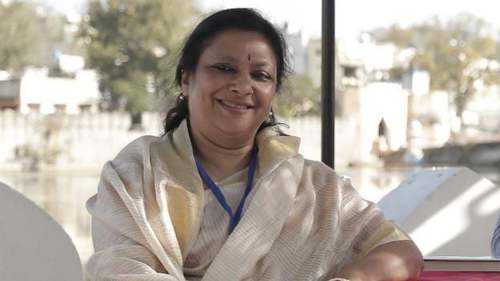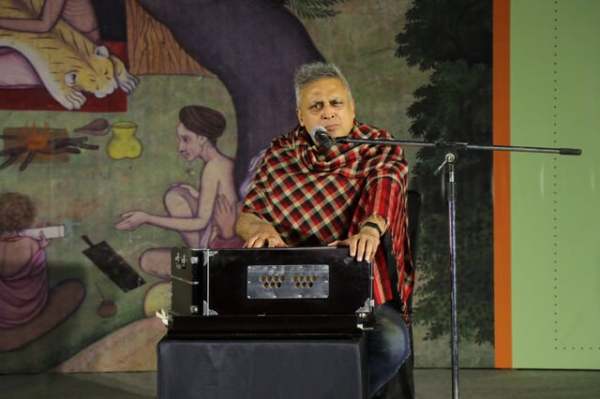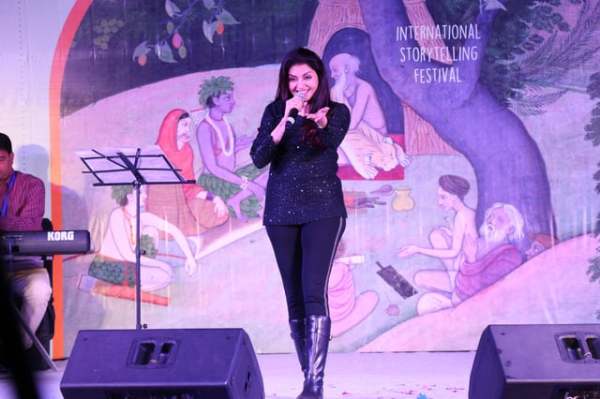
India is a land of stories. Storytelling in many forms is huge all over the country. Globally, storytelling is also part of many cultures. And there are a few places that are reviving this centuries-old art of storytelling. One such festival is the Udaipur Tales, an International Storytelling Festival founded by the husband-wife duo of Sushmita Singha and Salil Bhandari.
The festival celebrates storytelling art by bringing together narrators, writers, and enthusiasts from diverse backgrounds. It is held once every two years and has engaging sessions and performances highlighting the cultural heritage. The festival supports creativity and connection by helping participants share their stories and experiences. It therefore becomes a great platform for artistic expression and cultural exchange.
On the occasion of the sixth edition, which will be held from January 10 to 12, 2025, Sushmita Singha, the Co-Founder of Udaipur Tales, speaks about the event, which is India’s only oral storytelling festival.
Excerpts from the Interview:
Please provide some background information about yourselves.
I have always been passionate about creating platforms that foster cultural exchange and promote the arts. With a background in community and social entrepreneurship, I have always believed in giving back to society through the power of stories. Storytelling has the incredible ability to connect people, evoke emotions, and bring about change, and this has been my driving force. My co-founder, Salil Bhandari, is a seasoned businessman, chartered accountant, and cultural advocate. His dedication to amplifying diverse narratives and his deep understanding of business has played a crucial role in shaping the vision of Udaipur Tales. Together, we established this international storytelling festival to celebrate stories from all over the world and give oral storytelling the platform it deserves.
How did the concept of Udaipur Tales come up?
The idea came from a shared love for storytelling and a desire to create a global platform where diverse narratives can come together. Salil and I were deeply inspired by the power of oral storytelling to bridge gaps and create meaningful impact. We envisioned Udaipur, with its rich cultural history and artistic heritage, as the perfect setting for an event that celebrates both traditional and modern forms of storytelling.

Why Udaipur over other interesting Indian cities?
Udaipur was chosen for its cultural depth, historical significance, and scenic beauty, which offer a unique backdrop for a storytelling festival. The city’s rich legacy of art, history, and literature aligns perfectly with the essence of storytelling. While other cities were considered, Udaipur stood out for its tranquillity, artistic ambience, and atmosphere that inspires creativity, making it an ideal location for such a festival.
What have the earlier editions been like?
The earlier editions of Udaipur Tales have succeeded in attracting global audiences and celebrated storytellers. Highlights included powerful performances, immersive workshops, and community involvement. Some memorable moments were the interaction between international storytellers and local artists, creating a fusion of cultures.
What does the sixth edition offer?
The sixth edition promises a dynamic lineup of storytellers from around the world and offers something for everyone. From immersive experiences to interactive workshops, this edition will emphasize contemporary storytelling techniques. Attendees can look forward to new formats such as live storytelling combined with technology, and the inclusion of local storytellers alongside international guests. The fusion of traditional and modern storytelling styles will undoubtedly pique interest.
This year, the festival features celebrated Indian names such as Devdutt Pattanaik, Fauzia Dastango, Ajay Kumar, Ahmad Faraz, Debjani, Shweta Nadkarni, Shilpa Mehta, Shona Malhotra, Adithiya Kothakota, and Shilpa, along with celebrities like Vicky Ahuja and the Qutbi Brothers. Renowned international storytellers from Latin America and France will also join, showcasing the universal power of stories to connect people across cultures.
A standout is food stories—culinary tales paired with live tastings, offering a multisensory experience. The stories of food will bring regional flavours to life, enhancing the festival’s cultural richness. The Festival Village will offer handcrafted items and unique food offerings, creating an immersive environment. Additionally, Open Mic sessions will invite attendees to showcase their storytelling talent, with Jamghat performances adding to the magic every afternoon. On January 11th, master storytellers will be honoured in an exclusive showcase, celebrating their exceptional command of storytelling.

Does hosting a festival like this have trouble considering the various mediums acting as rivals?
While the rise of digital media and streaming platforms does pose a challenge, it also creates an opportunity to bring storytelling to a wider audience. The festival offers a more intimate, face-to-face experience that no digital medium can replicate. Hosting Udaipur Tales allows people to engage with stories in a personal, live setting, offering something unique that digital mediums often miss, connection and community.
Why is storytelling important in general and in a country like India?
Storytelling is a powerful way to share knowledge, experiences, and emotions, helping individuals connect with others and understand the world around them. For a country like India, with its vast cultural diversity, storytelling is a means of preserving traditions, sharing values, and fostering unity. The foundation of India itself is deeply rooted in stories—ancient oral traditions passed down through generations. These stories, which once carried information across villages and regions, were integral in shaping the collective consciousness of the nation. Storytelling, in its most ancient form, was the medium through which knowledge, history, and culture were transmitted, long before written texts became widespread.
What would you tell those interested in the festival in one word that will make them attend the sixth and future editions?
Immersive.